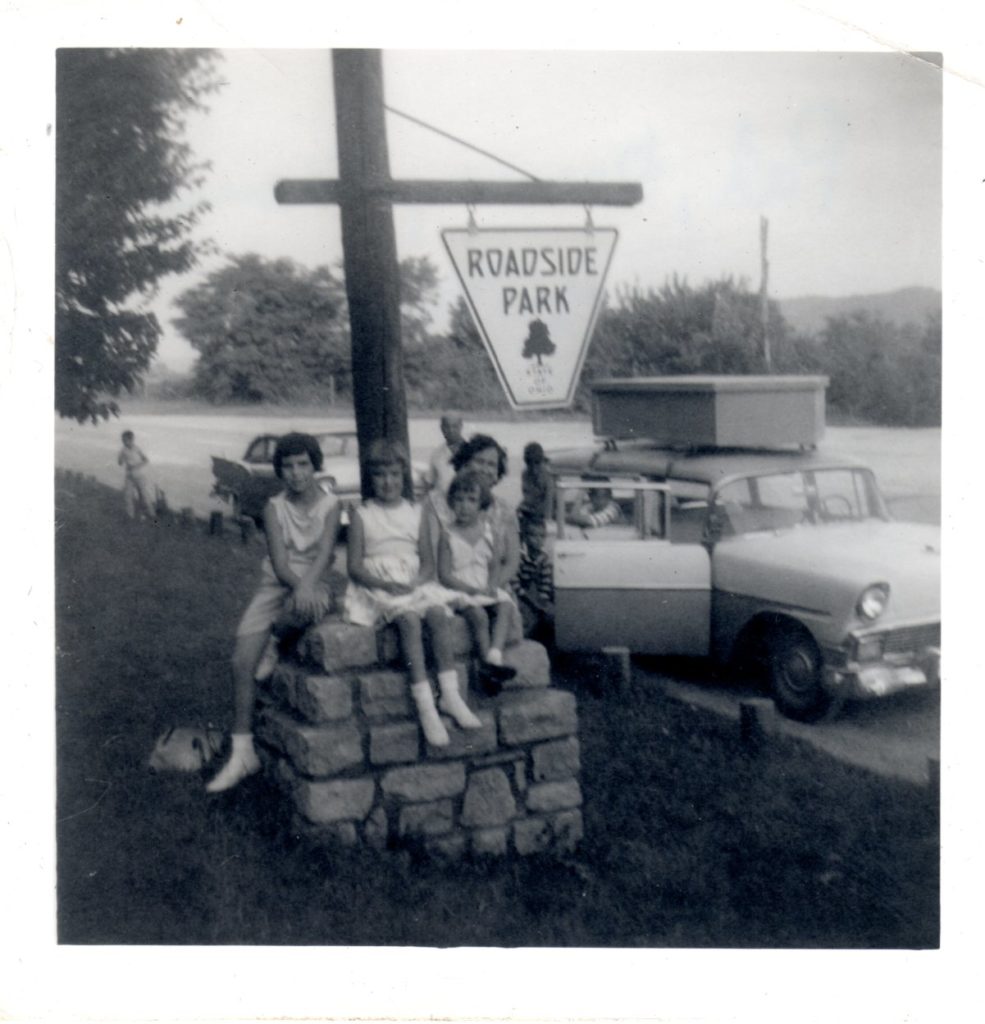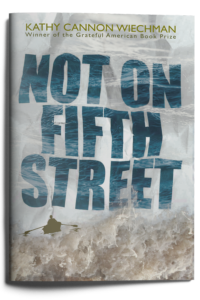About the Story
I wrote Doughnuts and Prayers more than 5 years ago about a day I will never forget. It happened 51 years ago this month.
I’d had my driver’s license for a month, and my car for a week. Icy roads had been treacherous that morning, but thanks to Dad’s instructions on driving wintry streets, I managed my second-hand, 1962 Chevy just fine. I couldn’t wait to tell him.
Learning to drive from Dad had been tough. He’d taught my older brothers first, and wasn’t ready for a daughter with no apparent clutch/gas pedal coordination. He’d lost his temper more than once when I stalled his station wagon. But I’d learned.
The afternoon roads were clear, and my Chevy handled perfectly. Dad was the one who’d found my car and haggled with the seller for a price I could afford.
I eased into the space in front of our house, but before I grabbed my purse, my two youngest sisters pulled open the door.
“Kathy,” Reene said, “Daddy’s in the hospital.”
“You have to fix supper,” Mary added.
The hospital? I rushed inside, where my oldest brother Bert explained. “Dad had horrible pains in his left arm, and Doctor Williams had Mom take him to the hospital because it might be a heart attack. It was. In the Emergency Room he went into cardiac arrest.”
I couldn’t seem to breathe. “His heart stopped? Is he…?”
“He’s alive—for now. Mom’s staying with him. She said for you to fix supper. Breakfast, too. Oh, yeah, and pray.”
The Prayers
I prayed, but not down-on-my-knees-hands-folded praying. I had supper to cook. OK, I didn’t really “cook.” I slid TV dinners in the oven (lasagna for Bert and Bob, roast beef for Mike, chicken for Reene and Mary, and turkey for Patty and me). I poured seven glasses of milk and set the table.
Random thoughts dropped into my mind. Who will tell me where to change my oil? Who can help me file income taxes? Who will walk me down the aisle when I get married? I need him, God.
Mom called after supper and talked to Bert. After he hung up, he parked the younger kids in front of the TV, and met in my room with Bob and me.
He sat on Patty’s bed, Bob sat on mine, and I stood between them and shifted my weight from one foot to the other.
“It’s bad,” Bert said. “They don’t know if he’ll live through the night. If he does, he won’t be the same.”
I stopped shifting. “What do you mean he won’t be the same?”
“His heart stopped for thirty minutes. The heart doctor said he’s never seen someone come back after fifteen. But something made him keep trying to get it going again. And Dad came back. But after five minutes, they expect brain damage.”
What would brain damage look like? No, not Dad.
“Mom’s staying with him,” Bert said. “She’ll call when she knows something. She said for you to take care of the little kids, Kathy.”
Patty and I washed supper dishes together. I noticed the tears that ran down her face and into the sudsy water. I tried to control my own tears and said silent prayers.
Bert had the tougher job. He called Grandma long distance and told her that her son was in the hospital and might not survive. She said she’d pray, too.
I prayed with the little kids and sent them to bed. Please, God, he has to live. Even with brain damage, we need him.
The Doughnuts
Mary couldn’t sleep. “The doughnuts are gone,” she said. “I need doughnuts for breakfast. You know the kind I like. With sugar.” We all knew the kind—the only kind—picky-eater Mary liked.
I checked the bread box and freezer. No doughnuts. I knew I should tell her to eat cereal or toast like the rest of us, but the look on her face reminded me that days ahead might shatter our world, and I wanted her to be able to sleep knowing she’d have doughnuts in the morning—like always.
I tucked her into bed with the promise I would get doughnuts.
I went to neighbors’ houses to see if anyone had doughnuts. They sympathized about Dad and asked if we needed anything.
“Just doughnuts. And prayers.”
One neighbor had cereal. “Do you really need doughnuts?”
How could I make her understand that I couldn’t break my promise to a little girl in the morning, when her afternoon news might be the worst kind ever?
I slid into my Chevy and touched the St. Christopher medal on the dashboard. Dad had given it to me the day we got my car.
He’d secured its magnet to the dash and winked at me. “He’ll protect you, but if you drive over the speed limit, he’ll get out.” Would brain damage destroy that sense of humor?
I drove past the dark, closed-at-six Kroger store and went to Seven-Eleven. The only sugar doughnuts were mini ones, not the size Mary was used to, but they’d have to do.
Dad made it through the night, but we were told to keep praying. I prayed while I packed lunches, grocery shopped, and “cooked” suppers.
Mom came home the second day and hugged us tighter than I could ever remember. She took a bath, changed clothes, and went back to the hospital.
On the fourth day, a neighbor watched Reene and Mary while we older ones were allowed to visit Dad. Five of us trooped down a hall that smelled like PineSol.
Dad had a tube in his throat, more in his arm, and one up his nose. Bags of clear liquid hung on a post, and machines beeped. He didn’t look alive at first, but I saw his chest move.
His eyes flicked open, and he grunted. The sight of him left me as unable to speak as he was. I just watched his chest rise and fall. He was alive.
The heart surgeon said it was a miracle. But he’d likely be in the hospital for months, and would never go back to work at the Post Office.
I tried to picture life with Dad home all day, lying in bed, needing to be fed, talking in grunts. We prepared ourselves for a different Dad. I’d have to take care of my own oil changes and find someone else to do my taxes. Could he go to my wedding in a wheelchair? It didn’t matter. He was alive.
But the miracle wasn’t finished.
A month later, Dad came home from the hospital. He leaned on Mom as he hobbled up the sidewalk, but he walked. And he talked. His mind was quick with an answer or a joke. His brain was the same as it had always been. He went back to the Post Office three months later.
He took aspirin every morning and ate healthier. We all ate healthier. Even Mary. But Doctor Williams warned us Dad could have a second heart attack—one without a miracle. So we never stopped praying.
Eventually, the second heart attack did come—and killed him instantly. But it came twenty-five years, four months, and six days after the first. Dad had time to teach the younger kids to drive and found Patty’s first car. He helped with my taxes every year until Bert became a CPA. He walked me down the aisle at my wedding and held his grandchildren.
Dr. Williams stopped in my hospital room when I was expecting my second child. He hugged me and said, “I’ve seen two miracles in my medical career. One of them was your dad.”
Dad’s miracle gave his seven kids and twenty grandchildren twenty-five years of great memories.




